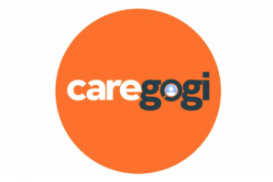How Omega-3 Fatty Acids Help Fight Dementia in Seniors
It’s no secret that a healthy diet and regular exercise can benefit the body in many ways. These simple things help the heart, your muscles, and in some cases, even your brain. As we age, our risk of developing certain brain diseases also increases. After age 65, the chance of being diagnosed with Alzheimer’s Disease and some other dementias doubles every 5 years. Dementia is a group of symptoms that affects mental cognitive tasks such as memory and reasoning. Genetics usually tends to be the major cause of dementia in seniors. However, that does not mean that there is no hope for reducing the risk of developing dementia. Continue reading to learn more about how fatty acids help fight dementia in seniors!
In recent years, studies have started to show that eating omega-3 fatty acids daily takes part in reducing the risk of developing some diseases and disorders such as stress, depression, and even dementia, specifically Alzheimer’s disease.
Also, studies are showing that these fatty acids are proven to reduce cardiovascular disease mortality rates by 37%. But what exactly is an omega-3 fatty acid – and how does one receive them?
What is an omega-3 fatty acid and how do they help the body?
Omega-3 fatty acids are essential fats that the body can only get from food (your body does not make them for you). These omega-3s provide the starting point for the creation of hormones that control contraction, blood clotting, inflammation, and relaxation of artery walls. They also are an important part of cell membranes throughout your body. All of these benefits help prevent strokes and heart disease and help protect against other conditions like Alzheimer’s (and even cancer).
The three main omega-3 fatty acids are known as alpha-linolenic acid (ALA), eicosapentaenoic acid (EPA), and docosahexaenoic acid (DHA). Eicosapentaenoic acid (EPA) and docosahexaenoic acid (DHA) are found mainly in foods like fish and other seafood. Meanwhile, alpha-linolenic acid (ALA) can be found mostly in nuts, as well as plant oils such as soybean, flaxseed, and canola oils.
Vascular dementia(s) and Alzheimer’s disease both have an excess of omega-6 fatty acids and a lack of omega-3 fatty acids.
Having a deficiency in omega-3 fatty acids can cause rough skin and a red, swollen rash. Most people get enough of these fatty acids from the foods they consume, which is why omega-3 deficiency is very rare in the United States. Although a deficiency is rare, it is still important to stay on top of your omega-3 fatty acid needs by eating the right foods.
What foods contain omega-3 fatty acids?
The amount of omega-3 fatty acids that are required for the body varies from person to person. If you have certain health conditions, you may require more than someone else. Foods that contain omega-3 fatty acids include:
- Fish (salmon, tuna, mackerel, cold-water fatty fish)
- Nuts and seeds (walnuts, chia seeds, and flaxseed)
- Plant oils (canola oil and soybean oil)
- Fortified foods (yogurt, juices, milk, soy beverages, certain brands of eggs)
Truly the best way to get these fatty acids is by eating fish twice per week. Fish is a great source of omega-3 fatty acids, and it also contains iodine and selenium. Both iodine and selenium also can have their own positive effects on the brain.
However, if you are not a fan of fish, no need to worry! There are supplements you can take that will help with your omega-3 fatty acid needs. Make sure to research, as well as consult your doctor to find the supplement that may be best for you.
Dementia is a challenging disease to watch your senior loved one navigate. Following some of the suggested dietary additions above regarding omega 3 fatty acids may potentially help reduce the risk of developing dementia. Also, these fatty acids may help with cognitive functions in patients that are already diagnosed. However, if your senior loved one is struggling to manage daily activities due to dementia, home care may be a comfortable, safe and helpful option.
Visit Caregogi
Activities of daily living include meal preparation, bathing, dressing, and light housekeeping, among many other typical daily tasks. Home care can allow seniors to keep their independence by remaining in their homes with the assistance of a caregiver.
While traditional home care agencies can be expensive, Caregogi can provide you with home care at nearly half the cost of traditional agencies by giving you the power to choose, interview, and hire the independent caregiver that you want. With a unique algorithm, Caregogi matches seniors in need of care with independent caregivers in their area based on their needs. Visit Caregogi today to see how Caregogi can help your loved one age in place in their home.
If you have any questions about how fatty acids help fight dementia, contact us today at Caregogi. We are happy to help!
